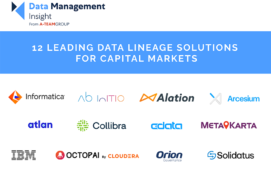The UK Financial Services Authority’s (FSA) February deadline for the introduction of the Alternative Instrument Identifiers (AII) is fast approaching and this week the regulator has granted Trax platform operator Xtrakter approval to regulatory report exchange traded derivatives (ETD) using the new identifiers. Jason Waight, Xtrakter’s recently appointed director of product management, explains to Reference Data Review that the development maintains its status as one of the two fully approved reporting mechanisms (ARMs) under MiFID.
The FSA’s approval of the new service also augments the regulatory reporting the vendor currently provides for other complex derivative instruments, says Waight, who joined the Xtrakter leadership team this month and is also head of product management at Euroclear UK & Ireland (EUI). ““FSA approval validates that our service is in full compliance with the new regulations, this development means that our European reporting hub now offers our subscribers even more functionality and value. Obtaining approval took place over a number of months, as to be expected, Xtrakter underwent an intensive review and period of testing with both the FSA and our user community,” he continues.
The vendor began the development process for the service towards the end of 2008, when it liaised with the Trax user community about the future requirements related to the reporting of derivatives to the FSA. “We engaged with members of our user community, identifying the critical requirements necessary to ensure that the future service complied with the new regulatory requirement. We have ensured that Trax reporting for AII instruments has the lowest possible technology impact for our user community. Later in the product development cycle we established a dedicated pilot group and undertook full end to end testing with these members and the FSA,” explains Chad Giussani, Trax and information services product manager at Xtrakter.
Xtrakter faced a number of challenges in delivering this new service; the most significant was the provision for the AII codes for validation within the vendor’s existing reporting hub, says Giussani. Exchange traded derivatives change frequently and new derivatives instruments are created daily, which means there is a complex process for the capturing of related data in order to generate a transaction report, says Giussani.
“Xtrakter worked extensively with the FSA, our user community and other information providers to capture all the data required in order to deliver a compliant service. Internally, we applied new agile development methodologies to the development and processing of data and transmission of transaction reports,” he continues.
AII codes are derived from six data fields pertaining to the underlying instrument and this level of detail has even posed difficulties for the FSA in getting ready to accept the new identifiers: it delayed the introduction of the codes by over a year.
Many of the market participants in the EU are already reporting exchanged traded derivatives, as a number of competent authorities are already processing AII transaction reports. The Committee of European Securities Regulators (CESR) had originally wanted each competent authority (CA) to collect AII data and share relevant reports with other CAs by November 2008, one year after MiFID went live. However, the FSA and ARMs found the practical reality of implementation much harder than first thought and indicated that they needed more time to build, test and implement the required system changes in order to meet AII transaction reporting requirements.
Xtrakter and the FSA are currently the only two ARMs offering AII reporting services to firms who have a reporting obligation in the UK. As an ARM under MiFID, Xtrakter provides regulatory reporting to the FSA in the UK, the Autorité des Marchés Financiers (AMF) in France and the Authority for the Financial Markets (AFM) in the Netherlands. It also provides primary dealers with an onward reporting facility to the National Bank of Belgium (NBB) in accordance with the NBB and Securities Regulation Fund requirements.
As well as the reporting service, Xtrakter has also developed another complementary service, Trax ReportingPlus, and more are likely to follow in the near future. “This service currently allows our clients to review the data submitted to FSA on behalf of our clients by Trax, the status of their transaction reports and if they have obtained an FSA receipt, thus providing them with further granularity on their level of regulatory compliance. In due course we aim to augment this offering to allow our clients to access trade level information for full reconciliation,” concludes Giussani.
Subscribe to our newsletter




